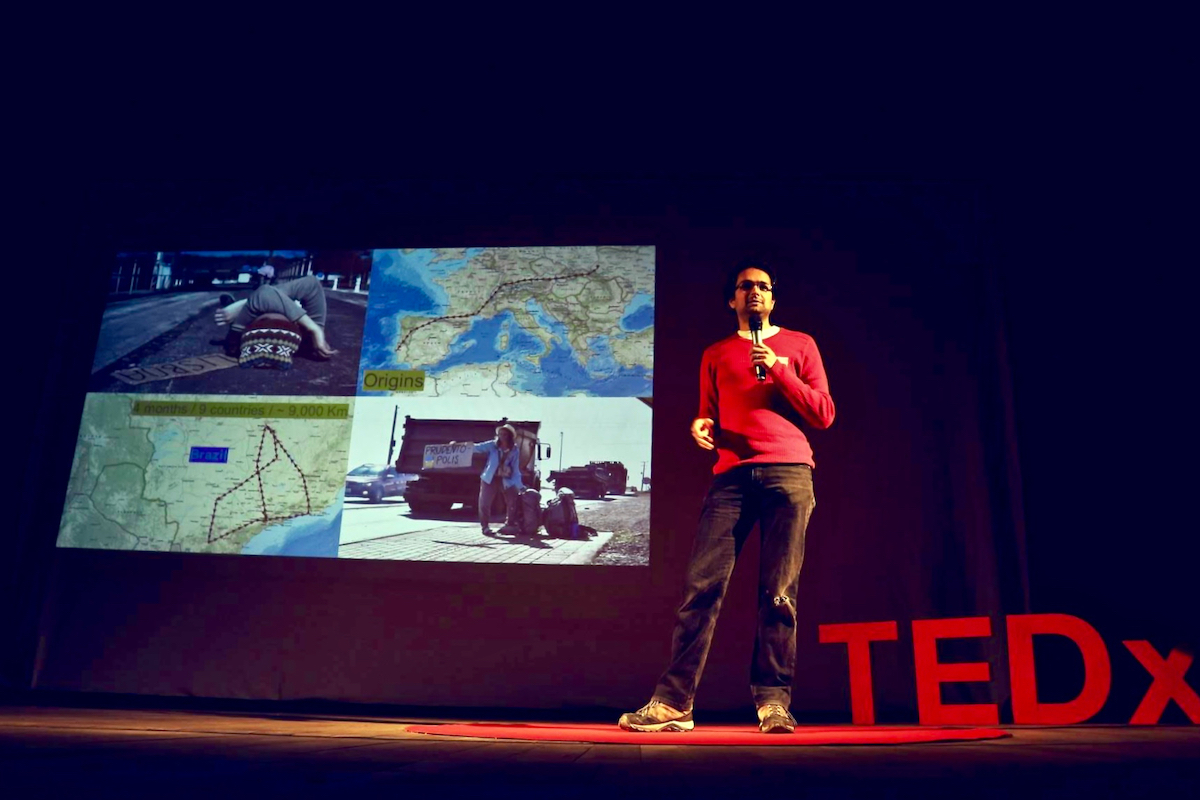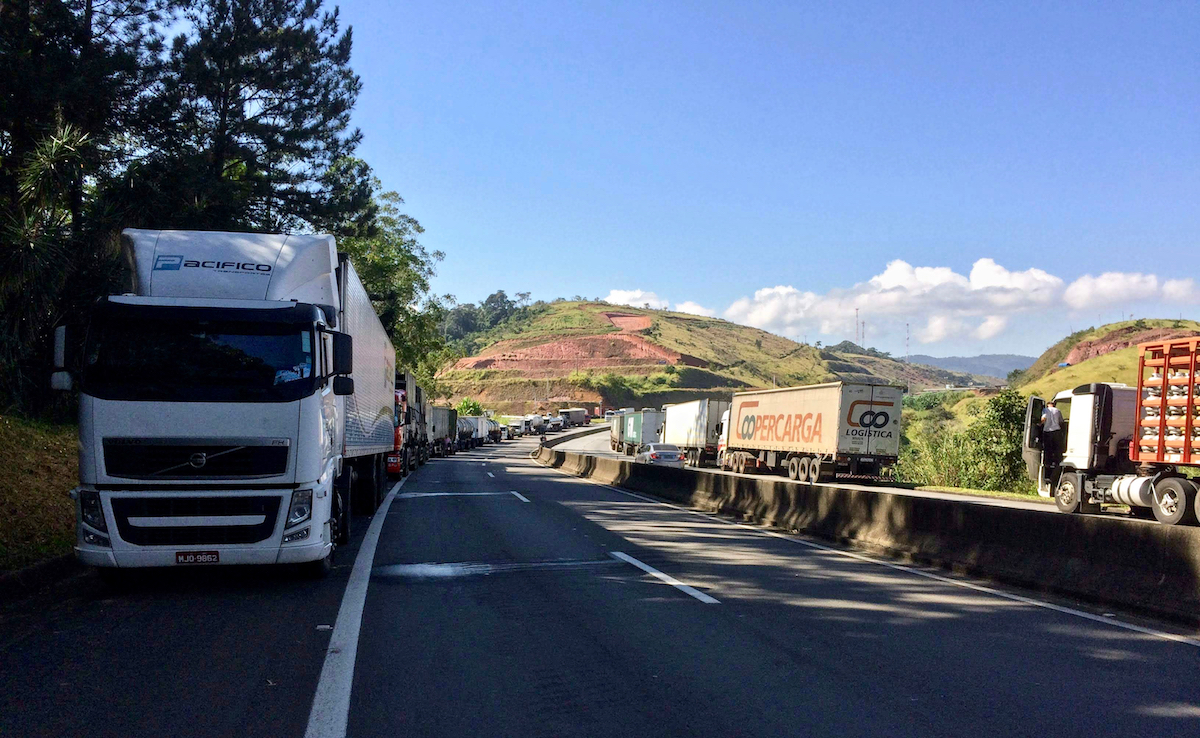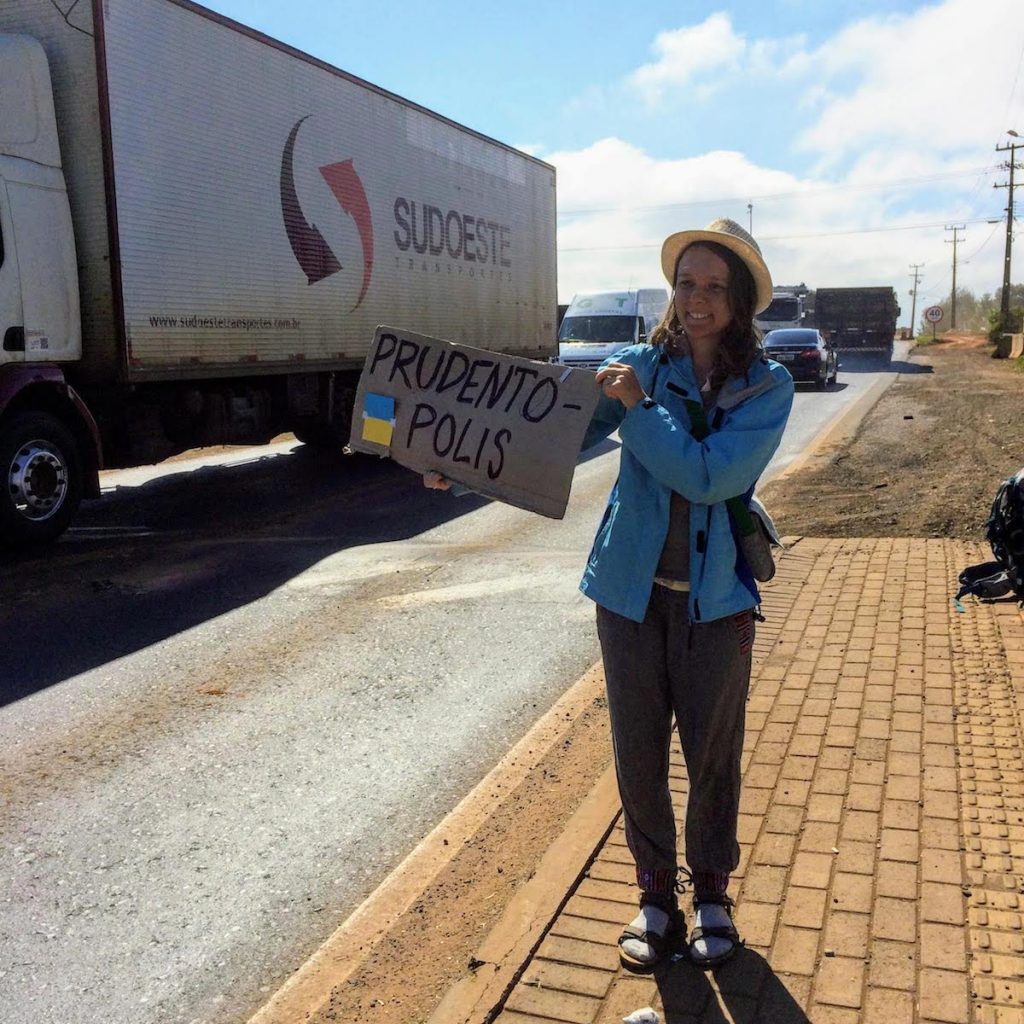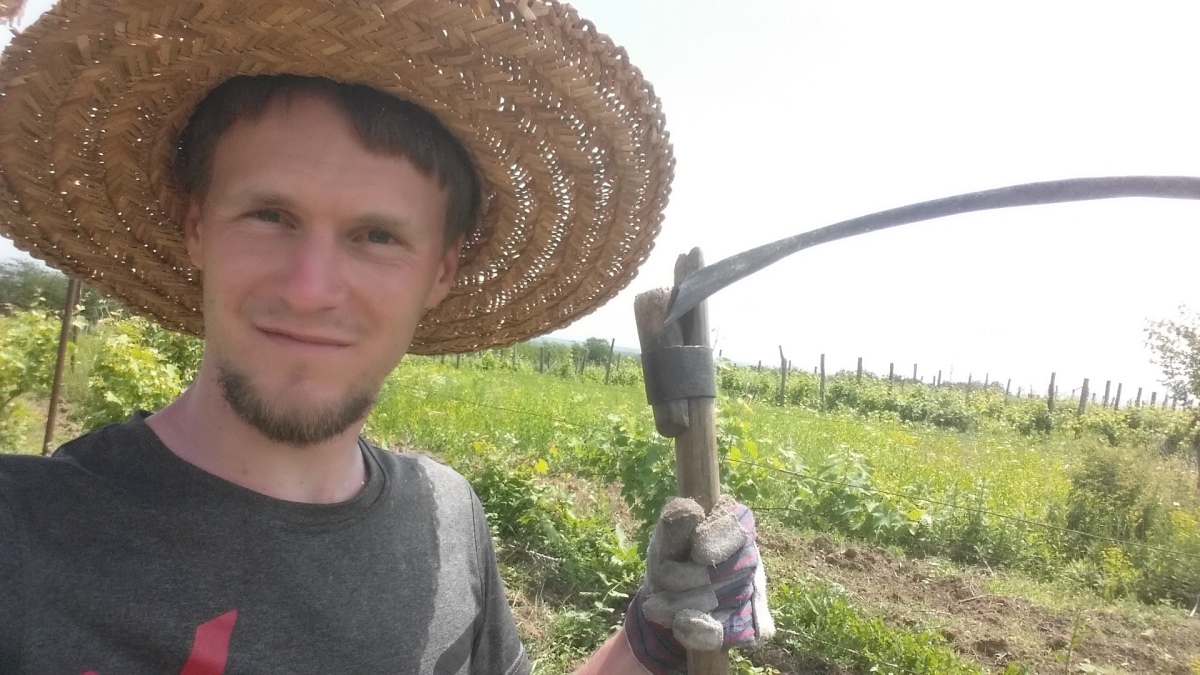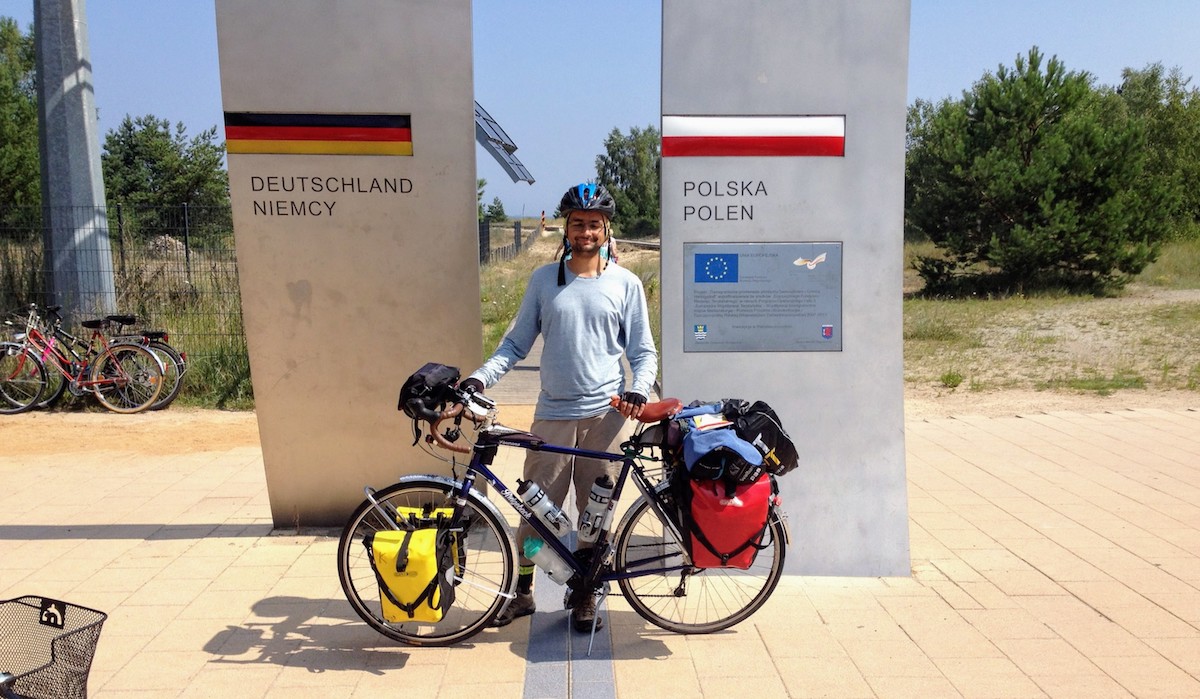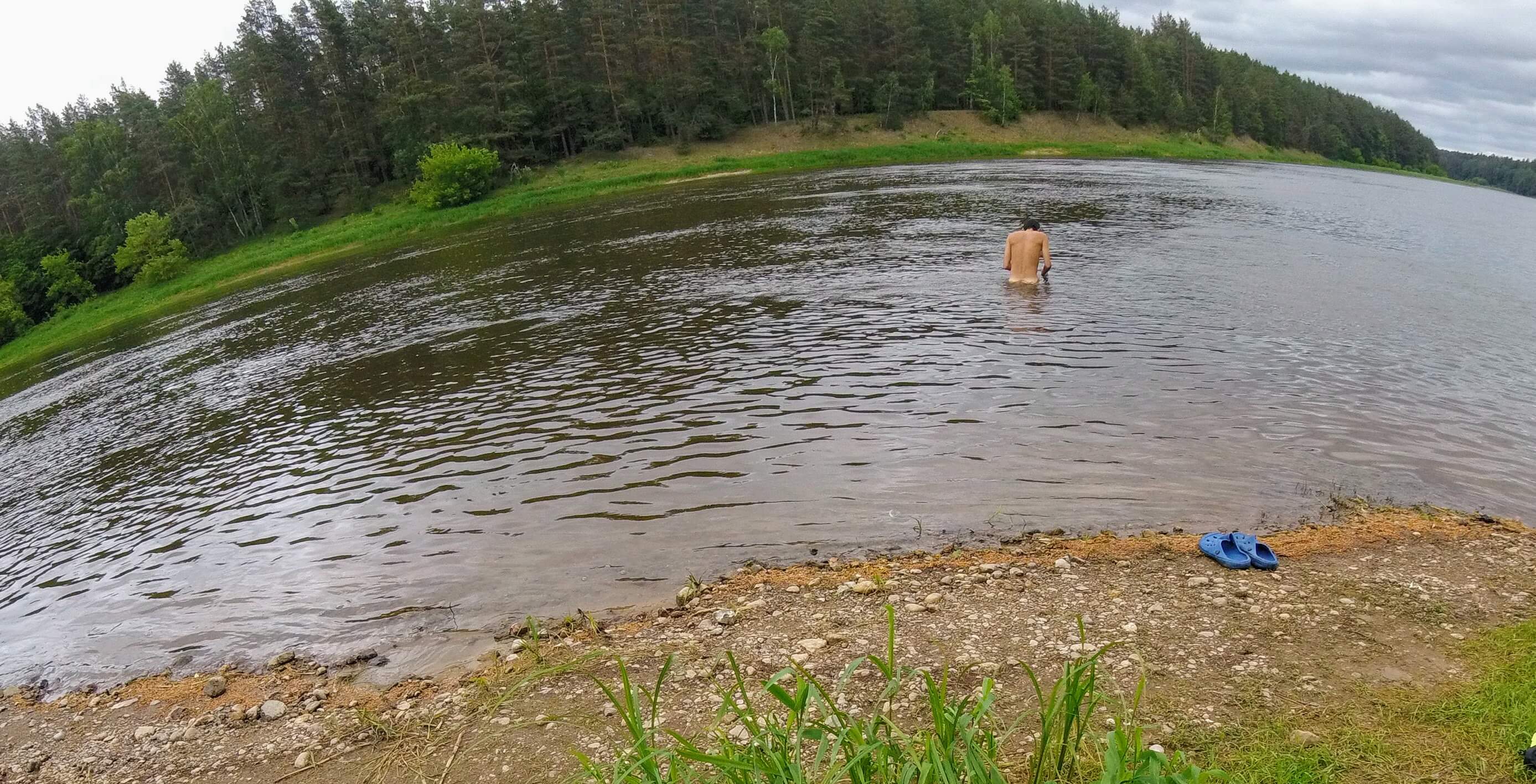A guest post by my partner and, sometimes, also travel companion Nastia.
“Parô, parô, parô!! Where are you going?! STOP, NOW! You’re not crossing the blockade!” – we’re stopped by a group of angry truckers soon after we finally leave Rio.
“I just need to see my friend who’s running out of supplies on the other end. I am not going to cross the blockade,” calmy says our driver Luis.
“I don’t give a fuck. Tell him to come here. Nobody’s passing,” they demand.
Somehow, he persuades this bunch of his good intentions. But there are another four kilometers of the blockade, and we are stopped every few hundred meters “Encosta aê!” Luis calmly repeats the same thing he said to the other men before, but this one wouldn’t listen – “Encosta aê, caralho!” – the man’s eyes start filling with blood, and a hand is reaching out for a gun. “Please, just stop somewhere,” I’m begging our driver in my mind.
The night before leaving Rio de Janeiro my husband Mika and I learn that truckers went on a strike over gasoline prices and blocked major roads throughout Brazil. This caused a massive disruption because the country relies on trucks to transport everything – from food to fuel, making it difficult to hitchhike. But Mika has to be back home in Brasilia, a thousand kilometers away to give a presentation about his travels in a week. We don’t have a choice except to trust the gods of hitchhiking and kindness of the few drivers left on the road.
After several local rides, we get out of Rio and eventually find a truck who isn’t on strike (yet). He’s going where we want to arrive today. Naive of him. Soon we’re stopped by a group of enraged truckers. But Luis convinces all of them to let him get to his friend. “How?!” – “I simply knew what I was doing, and that it was right.” Unbelievable! It’s like in those movies – a cool cop calmly facing down an angry or scared young man pointing a gun at the cop. “You just need to know what you’re doing and confiar em yourself that this is the right thing to do.” Just trust yourself . . .
Luis and his friend share their food and “home” giving us some space in the cargo compartment where we set camp for the night. However, there’s one issue – I’m the only female among a mob of angry truckers, and I’m afraid to go pee. But our driver being a protective host reassures us “We won’t let them hurt her,” pointing to his machete, “And I also have something more, in case this won’t be enough,” implying a gun.
Yes, just about every trucker carries a gun because they’re often robbed. That’s why they’re not allowed to give rides and have trackers indicating a passenger in the car. But those who want to help travelers find a way to trick the system, risking their jobs and even lives. Hitchhiking in Brazil is quite challenging – people don’t trust strangers. Nevertheless, sometimes after we nearly begged for the ride, the drivers were holding back tears when goodbying.
Along our way, we have encountered so many helpful and kind people – they trusted to let us in their homes, they cooked for us, both they and we shed tears when leaving. After all this kindness, we wanted to pay back to the world somehow.
And the opportunity presents itself the morning after we arrived home. A shabby-looking man with the skin revealing that he works a lot in the sun rings the doorbell asking for a bag and some food. He says he knows Mika’s grandmother who’s out for some time. We decide to do something Mika would never have thought of before this journey. We invite him to sit with us for breakfast and ask to get some bread with our money. Not only he comes back with the bread, but also gives back the change. He was very humble and almost didn’t speak, and we were shy to ask his story watching him being clumsy with the fork and knife. The man was very grateful for the breakfast and sandwiches we give him for lunch. And we feel like this is the smallest but not the last thing we could do to give back what we received from the world.
__
Featured photo: a kilometers-long line of trucks picketing near Juiz de Fora, MG where we spent the night in Luis’ cargo compartment (Brazil, May ’18)
Long before we met, Nastia was already a devoted traveler, having hitchhiked around much of Eastern Europe and Germany. Besides exploring the world, she’s also interested in education (she’s an English teacher), the environment, and femininity, about all of which she reflects regularly on her blog — mostly in Ukrainian, sometimes in English. After we got married, we traveled together for several months in 2018 visiting friends and family across Europe and around Brazil. This is one of the many pieces Nastia wrote in reaction to her experience in my home country, adapted and translated into English for a travel writing scholarship application.
If you’d also like to be featured on the Not Mad Yet website, i’m open for contributions! The first step (if you haven’t taken it already) is to sign up for my weekly newsletter, where you’ll become familiar with my work and find out whether you actually want to be associated with it 😉
To contact me, simply reply to any of my emails, and we’ll take it from there 🙂
Guest articles: Nastia MF; hitchhiking; Brazil

